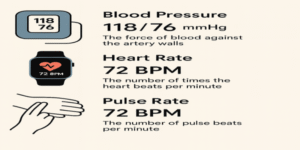Title: The Perceptions and Experiences of Consumers Engaging with Sustainable Fashion Brands
Chapter 1: Introduction
1.1 Background to Research Topic
The first step in constructing a strong research proposal is to establish the context and focus of the study. This research explores the perceptions and experiences of consumers engaging with sustainable fashion brands. With rising concerns about climate change and ethical consumption, sustainability has become central to consumer decision-making (Joy et al., 2012; Fletcher & Tham, 2019). This qualitative research proposal will outline research design to investigate how consumers perceive, interpret, and respond to sustainable fashion practices in the UK retail industry.
1.2 Background to Research Organisation
The research will be based on the UK-based fashion retailer EcoWear, established in 2016. EcoWear promotes its commitment to sustainable fabrics, ethical sourcing, and recycling schemes. The company has cultivated a loyal following on social media and engages in storytelling marketing to emphasise transparency in supply chains. The study will assess how EcoWear’s sustainability messages are understood and valued by its consumers.
1.3 Research Rationale
The rationale stems from the rapid growth of the sustainable fashion market and the lack of qualitative research on consumer perceptions. While quantitative studies have measured attitudes towards eco-friendly consumption (Henninger et al., 2016), fewer have examined the lived experiences and narratives of consumers. This study seeks to provide rich insights into how sustainability claims are interpreted, helping businesses align practices with consumer expectations.
1.4 Research Aim
The aim of this research is to explore consumer perceptions and experiences of sustainable fashion practices promoted by EcoWear.
1.5 Research Objectives
- To explore how consumers interpret EcoWear’s sustainability claims.
- To examine the role of storytelling and branding in shaping consumer perceptions.
- To understand the emotional and ethical factors influencing sustainable consumption choices.
Chapter 2: Research Methodology
2.1 Research Philosophy
The research adopts an interpretivist philosophy, which emphasises understanding the meanings and experiences of participants (Saunders et al., 2019). Interpretivism is appropriate here, as the research seeks to uncover subjective perspectives rather than measure variables objectively.
2.2 Research Design
A phenomenological design will be employed to capture the essence of consumer experiences with sustainable fashion (Smith et al., 2009). This design allows for a deep exploration of participants’ feelings, motivations, and interpretations.
2.3 Research Approach
An inductive approach will be adopted, building theories from participant narratives rather than testing pre-existing hypotheses (Creswell & Poth, 2018). This aligns with the goal of generating new insights into sustainable consumption.
2.4 Research Strategy
The research strategy will be a case study of EcoWear. The case study approach allows for an in-depth contextual analysis of how consumers engage with a single organisation’s sustainability efforts (Yin, 2018).
2.5 Research Methodology
This study will utilise a qualitative methodology through semi-structured interviews. This method allows participants to share their personal experiences while enabling the researcher to probe for deeper insights (Silverman, 2020).
2.6 Research Techniques/Tools
- Primary data will be collected using semi-structured interviews with 15–20 EcoWear consumers.
- Interviews will focus on their interpretations of EcoWear’s messages, purchasing motivations, and views on sustainable consumption.
- Interviews will be recorded (with consent), transcribed, and analysed thematically.
2.7 Sampling Approach
The study will use purposive sampling to select participants who have purchased from EcoWear within the last year. This ensures participants have direct engagement with the brand (Etikan et al., 2016).
2.8 Ethical Considerations
Key ethical considerations include informed consent, confidentiality, and data protection. Participants will be fully informed about the purpose of the study, and pseudonyms will be used in transcripts to ensure anonymity. Data will be stored securely in compliance with GDPR guidelines (Babbie, 2016; Israel & Hay, 2006).
Chapter 3: Literature Review (Selected Sources)
- Fletcher, K., & Tham, M. (2019). Earth Logic: Fashion Action Research Plan. The J J Charitable Trust.
- Henninger, C. E., Alevizou, P. J., & Oates, C. (2016). What is sustainable fashion? Journal of Fashion Marketing and Management, 20(4), 400–416.
- Joy, A., Sherry, J. F., Venkatesh, A., Wang, J., & Chan, R. (2012). Fast fashion, sustainability, and the ethical appeal of luxury brands. Fashion Theory, 16(3), 273–295.
- Saunders, M., Lewis, P., & Thornhill, A. (2019). Research Methods for Business Students. Pearson.
- Silverman, D. (2020). Interpreting Qualitative Data. Sage.
- Smith, J. A., Flowers, P., & Larkin, M. (2009). Interpretative Phenomenological Analysis. Sage.
Chapter 4: Timescale
| Task | Time Frame |
| Initial Research & Proposal | Weeks 1–3 |
| Literature Review | Weeks 4–6 |
| Data Collection (Interviews) | Weeks 7–9 |
| Data Analysis | Weeks 10–11 |
| Final Draft Writing | Weeks 12–14 |
| Final Submission | Week 15 |
References
Babbie, E. R. (2016). The Practice of Social Research. Cengage Learning.
Creswell, J. W., & Poth, C. N. (2018). Qualitative Inquiry and Research Design: Choosing Among Five Approaches. Sage.
Etikan, I., Musa, S. A., & Alkassim, R. S. (2016). Comparison of convenience sampling and purposive sampling. American Journal of Theoretical and Applied Statistics, 5(1), 1–4.
Fletcher, K., & Tham, M. (2019). Earth Logic: Fashion Action Research Plan. The J J Charitable Trust.
Henninger, C. E., Alevizou, P. J., & Oates, C. (2016). What is sustainable fashion? Journal of Fashion Marketing and Management, 20(4), 400–416.
Israel, M., & Hay, I. (2006). Research Ethics for Social Scientists. Sage.
Joy, A., Sherry, J. F., Venkatesh, A., Wang, J., & Chan, R. (2012). Fast fashion, sustainability, and the ethical appeal of luxury brands. Fashion Theory, 16(3), 273–295.
Saunders, M., Lewis, P., & Thornhill, A. (2019). Research Methods for Business Students. Pearson.
Silverman, D. (2020). Interpreting Qualitative Data. Sage.
Smith, J. A., Flowers, P., & Larkin, M. (2009). Interpretative Phenomenological Analysis. Sage.
Yin, R. K. (2018). Case Study Research and Applications: Design and Methods. Sage.









